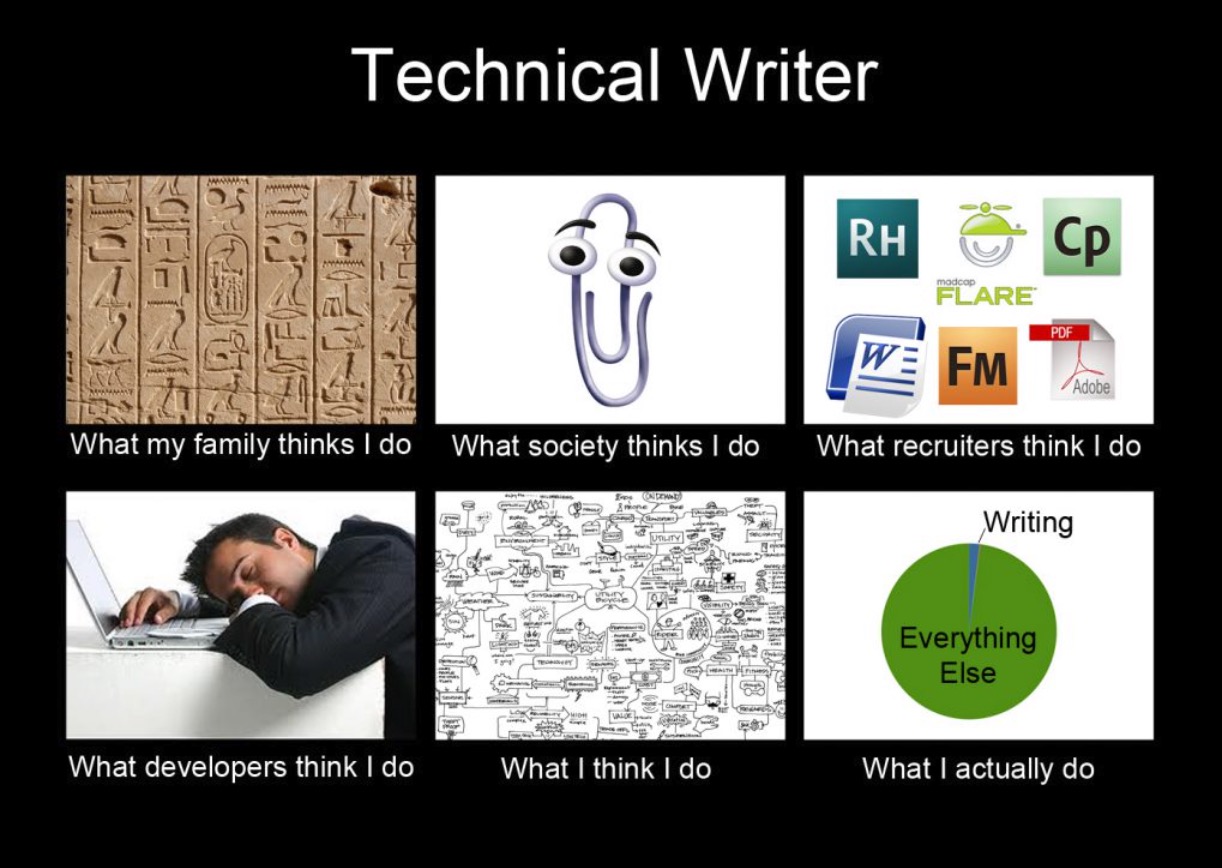If you know that after you have written documentation for a day, one person asks you to make it clearer, then you understand the struggle. Documenting life is not only about the accuracy of details and providing quintessential clarities; it is put up with confusion and humor a lot as well. But what can be a better way to enjoy the evolution of chaos than getting some of the most popular jokes found on the Internet?
Today’s technical writers are in touch with more tools of AI, last–minute changes, and jargon than ever in 2025. Of course, the memes for this year have captured such evocations perfectly. This is attributed to the fact that regardless of how many years you have been in the industry or whether you are still a beginner, these trending jokes will be familiar. Here are the most hilarious documentary jokes out there!
1. AI-Generated Documentation: A Gift and a Curse
The times when professionals could create satisfactory user guides and manuals manually are long gone, with the changing times of embarking on the automation of every task. Thanks to innovative solutions, companies are now able to produce content much faster. However, it is not error-proof. This has motivated jokes concerning artificial intelligence, which either expound on the most basic topics or omit some necessary information.
The funniest joke of the year made during the convention is where a technical writer questions an AI tool for a brief definition. The AI’s response? An essay of 500 words on when to press the Enter key. Another one is the reversal of the scenario where an installation guide is summed into “Just install it.”
Despite help from automation, there is still a lot that can only be done by a proper writer, focusing on the proper wording and style of documents that the software has created. That’s why such jokes are so popular – despite AI and all the wonderful technological solutions it offers, people’s experience is indispensable.
2. The Never-Ending SME Feedback Loop
The students also learned that getting feedback from subject matter experts is very difficult, especially for those who work in the documentation field. This points to the fact that writers and publicists often invite reviews weeks ahead of the given date, and unfortunately, sometimes, they are paid no attention to until the last moment. When the feedback is given, it is usually in a rush of numerous changes – before submission time.
One of the recurring memes from the year depicts a polite writer assiduously requesting input from an expert time and time again. The next image? The same writer is getting 30 changes that are as urgent as possible in the middle of the night. There is another telling of this joke, where one expert says, “It looks good to me,” and then recommends that it be rewritten two hours before it is posted.
These jokes mirror present-day experience: documenting is true teamwork while making every team member complete their part on time is a masterpiece.
3. “Just Make It More User-Friendly” – The Most Useless Feedback Ever
This is one of the most annoying things that a professional can hear from someone or another without being told what exactly to refine. It is like asking a chef, ‘Can you improve this dish?’ but not elaborating on how he should do so, whether it is regarding taste or spices.
This year, there has been a humorous health and safety meme going around about this feedback. One of them is a representative of a perfectly designed document with the remark of the reviewer: “Can we make it warmer here?” The tech writer’s reaction? Total confusion.
Another scenario involves a writer changing only one word after receiving vague feedback and having the reviewer immediately approve it. This brings out the fact that sometimes people just like to get a feel of having a say in what is going on in their writings.
4. The Struggle of Writing Release Notes
Ever since there are product releases, there have been specific change release notes intended to keep users abreast with whatever new changes have been rolled out; however, different teams believe different things should be conveyed in the release notes. Full stack developers conclude all of the updates as ‘bugs and enhancements.’ On the other, marketing departments prefer to term all changes as ‘reformations.’
This year’s most shared joke is that of a tech writer making minute adjustments as such ‘Optimized database queries for 20% reduction in load time’. Next, marketing will retouch it to make it more appealing, thus bringing up ‘Blazing-fast performance enhancements!’ As opposed to that, the development team simply says, “Well, just got these bug fixes.“
These jokes give one of the key fights: specificity against clarity. In the best of intentions, one may spend hours rife about a lengthy weblog entry and still have something rather vague and simplistic by the time it’s written.
5. When Jargon Takes Over the Documentation
Documents should remain simple to comprehend, and this is due to the fact that some of the manuals contain complicated terms that are almost incomprehensible.
Perhaps the most popular meme this year is the one in which a user is left speechless while facing an application instruction guide containing such terms as “cloud-native asynchronous microservices architecture.” The caption? In simple words, the guidelines simply say, “Just tell me where to click!
One possible continuation of the joke intends to contrast a clear and concise guide written several years ago with a new guide full of hype and roughly abbreviated terms. The result? The new manual is very professional in its appearance, but there are no changes they can understand from engineers.
As this trend shows, there is a real issue in the field. Clarity supersedes complexity as to the degree of elaboration used in writing. It is sheer frustrating trying to use a guide that has long regarding tones while all I am searching for is a succinct answer.
6. The PDF vs. Word Document Debate
There is no doubt that during the course of one technical writer’s career, they have been asked at least once, “Can I get this in Word?” Nevertheless, if a finished article is typed and available in a PDF format, at least someone will ask for the Word file.
One popular meme this year is of a writer attaching a neat and professionally redlined PDF to a manager, and the latter’s response is to ask for a Word doc. The next panel? The writer is crying in frustration.
Also, there is a joke about this; they say that when a PDF is opened on the computer, it can look just great, while on the phone – it simply does not look the same. These jokes portray how an activity as straightforward as amending the file format for a document becomes a challenge.
Why These Memes Matter
Though these jokes tell the truth and are rather entertaining, they illustrate how gruelling working in documentation is. Here’s what I concluded: Regarding the vagueness of feedback, the unpredicted change of plans, or even the use of automation in business, there is always something funny to report.
Memes assist the employees in sharing related experiences and, therefore, minimize the level of frustration felt when working. They also pointed out that people will always need simple and clean written material regardless of the advancement in technology.
Where to Find More Humor
However, if you were amused by these jokes, that is only the tip of the iceberg. As a result of the available vacancies, many people share funny stories on Reddit, LinkedIn, and industry Slack channels. Some writers develop new memes out of real-life situations, which adds even more humor to the readers.
Have you heard any fun-filled documentation-related jokes? Could you share it in the comments? Every writer has had some experience that they would love to look back and laugh at, whether it is due to confusing feedback, an AI fail, or a terrible format.
Final Thoughts
Not all technical documents may be interesting, but the humor derived from them certainly is. It will become richer as new forms of automation, feedback loops, and various jargon-filled texts are adopted in writing and speech. The best part? However, to achieve all that is noble and to have a good laugh even with a full-blow AI, humans can never be replaced as writers.




Leave a Reply